
A 27.42-meter-long pen and ink scroll on Tibetan opera is on display in Lhasa, capital of southwest China's Tibet Autonomous Region. (Xinhua/Liu Dongjun)
A 27.42-meter-long scroll depicting a Tibetan opera is currently on display in Lhasa, capital of southwest China's Tibet Autonomous Region. It has been certified by the World Record Certification Agency as the longest Tibetan theme pen painting in the world.
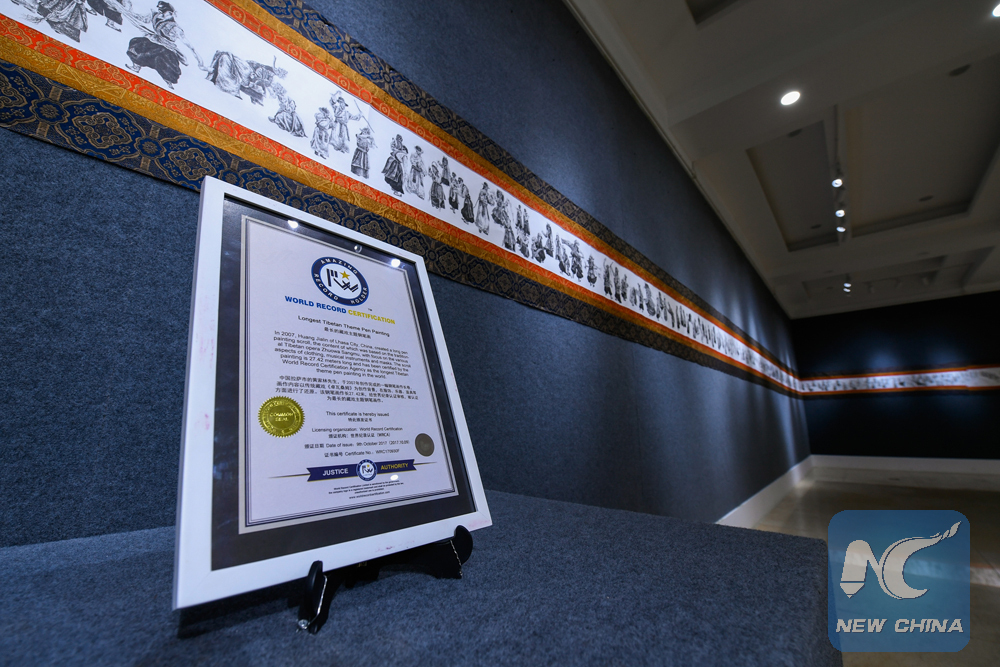
The painting has been certified by the World Record Certification Agency as the longest Tibetan theme pen painting in the world. (Xinhua/Liu Dongjun)
The scroll depicts Drowa Sangmo, a Tibetan opera which includes many references to early Tibetan folklore, history and the introduction of Buddhism. It is one of the most famous and beloved Tibetan operas. The scroll features over 300 figures and elaborates on the staging, costumes and masks in Tibetan Opera.
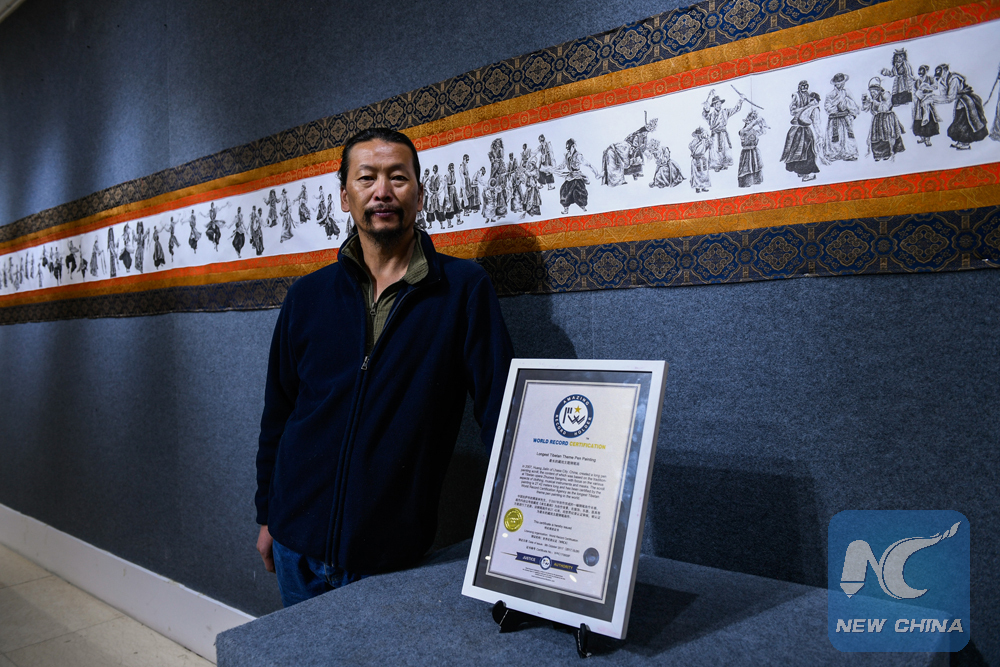
Painter Huang Jialin and the record certificate. (Xinhua/Liu Dongjun)
Huang Jialin, born in Tibet in 1966, painted the scroll. Huang had the idea of creating a painting on Tibetan opera about a decade ago. He said the painting helps him express his love for his home and culture.
He had originally planned just one illustration, but the project grew considerably bigger as he learned more.
"I went to a Tibetan opera troupe in Lhasa to search for information and inspiration for my illustration. The troupe took it so seriously that they performed a whole opera for me. The atmosphere, the music and the performances were awesome, which really moved and intrigued me," Huang said.
After that experience, Huang spent over a year on the painting. He kept in close contact with the opera artists and frequented theaters to watch them rehearse and perform.
He said that drawing was not difficult for him. The challenging part was to attempt to encompass the whole atmosphere.
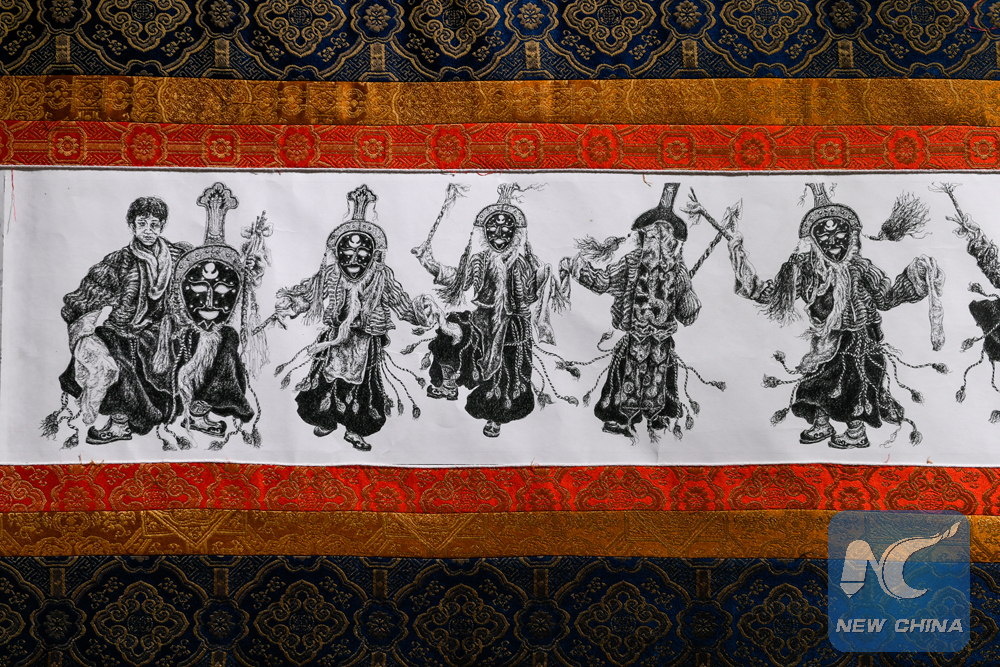
A part of the painting. (Xinhua/Liu Dongjun)
"[Tibetan opera] has its own stylistic conventions - the roles, their different make-ups, costumes and movements, as well as the stages... I have to explain all of them with my pen," Huang said.
The painting was completed a decade ago but it was not until recently that it was displayed in public. Another 60 artworks of Huang were also in the exhibition.
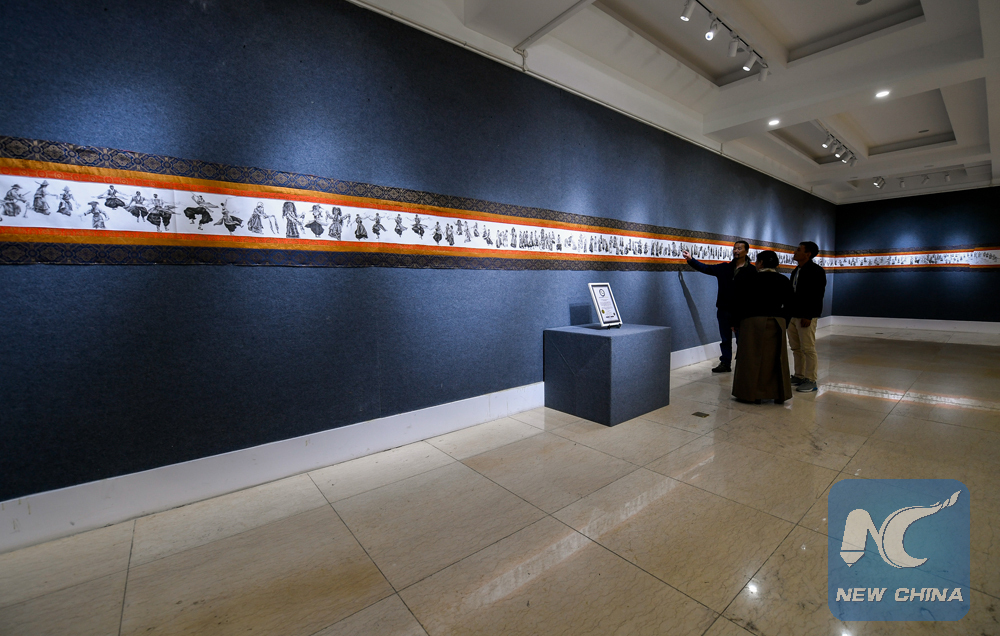
Huang introduces the painting to visitors. (Xinhua/Liu Dongjun)
"I kept painting all these years and most of my paintings focus on the cultures, landscapes and changes in Tibet. This is my first exhibition. I feel very proud and happy that so many people are interested in them. I also feel that I have done something useful for cultural preservation," Huang said
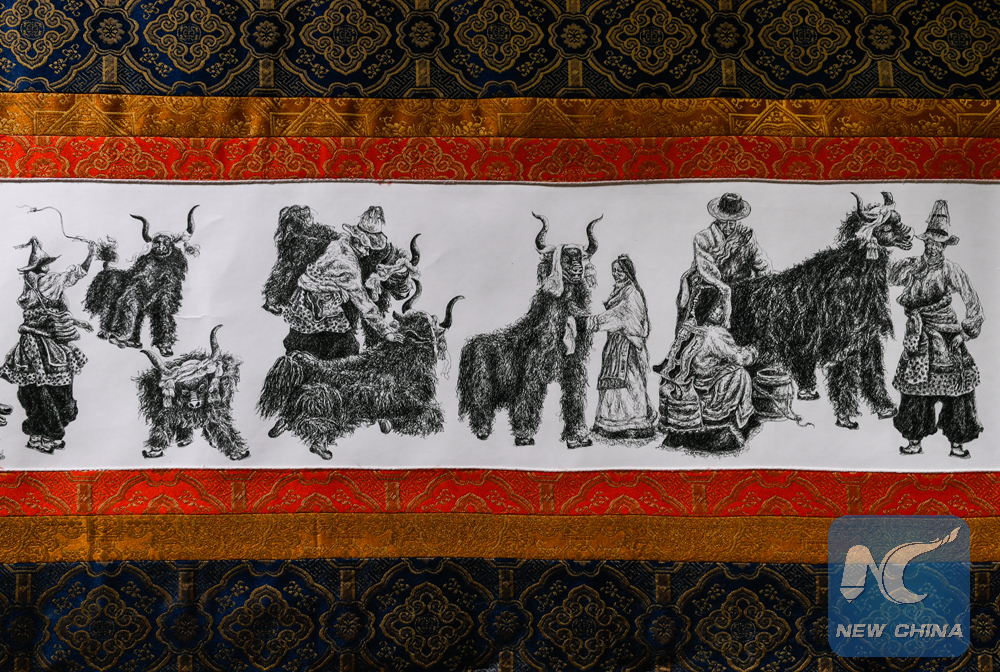
Part of the painting. (Xinhua/Liu Dongjun)
The Tibetan opera, popular on the Qinghai-Tibet Plateau, is an all-encompassing art combining folk song, dance, storytelling, chant, acrobatics and religious performances. Rooted in Buddhist teachings, the stories told in Tibetan opera often recount the triumph of good and the punishment of evil.
Tibetan opera was inscribed on the UNESCO Representative List of the Intangible Cultural Heritage of Humanity in 2009.

